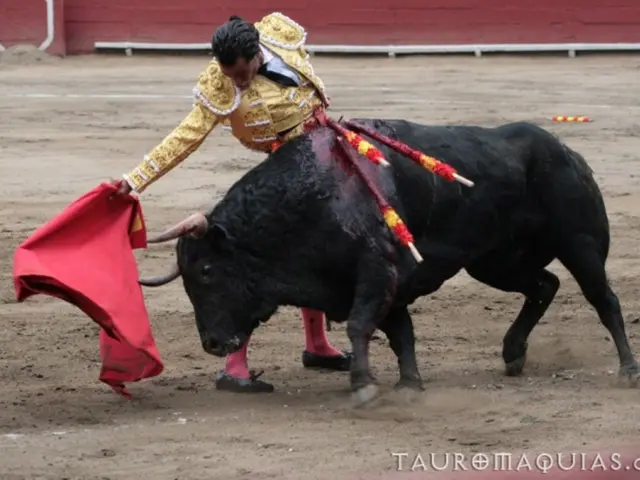In the Shadow of Tragedy: The Psychological Unsuitability of Graz's Rampager for Military Service
- *
Army applicant from Graz determined as psychologically unsuitable due to mental health issues - Army-Rejected Gunman in Graz Deemed Mentally Unstable
In the aftermath of the horror that unfolded in Graz, reports emerged that the perpetrator had been unfit for military service, according to the spokesperson of the Austrian Armed Forces, Michael Bauer. This revelation was first disclosed on the platform X by ServusTV. Contrastingly, he managed to pass a psychological fitness test for a firearms license this spring.
The 21-year-old—a passionate devotee of first-person shooter games—led a solitary existence. As stated by the head of the Styrian State Criminal Office, Michael Lohnegger, the perpetrator was painfully introverted. Despite multiple attempts, a motive for this senseless act remains elusive.
On a fateful Tuesday, the gunman, a former school student, embarked on a rampage. Armed with a semi-automatic pistol and a sawed-off shotgun, he indiscriminately targeted his former institution, claiming the lives of nine students aged 14 to 17 and a teacher who had once nurtured his intellect. Having abandoned his educational journey, he ultimately ended his own life.
In the wake of the violence, eleven others were injured. The majority of the survivors required intensive care, but their conditions have since stabilized as per hospital operator Kages.
Mourning Grips Vienna
As evening descended, the people of Vienna gathered at St. Stephen's Cathedral, offering solace to the bereaved and a collective expression of grief. Among them were Federal President Alexander Van der Bellen and Federal Chancellor Christian Stocker. Clerics from the Catholic, Protestant, and Islamic communities offered comfort through prayers. "The scars left by this terrible rampage will endure," administrator of the Archdiocese of Vienna, Josef Grünwidl, poignantly remarked in his welcome address.
Seven Minutes of Terror
The rampage transpired over seven minutes and was meticulously planned, the police reported. The attacker was outfitted with a Glock pistol, a double-barreled shotgun with a shortened stock, shooting glasses, a headset, and a hunting knife. At the time of the assault, there were approximately 350 to 400 students present within the building. The school administration responded "exceptionally well" to the attack, locking classrooms and attempting to barricade doors—behavior regularly discussed by the school staff.
Random Acts of Violence
Initially, the rampage shooter targeted random victims on the second floor of the school, the police revealed. He then forced open a third-floor door, previously locked from the inside, before taking his own life with a shot to the head. Simultaneously with the arrival of the police, the 21-year-old still had enough ammunition to continue his rampage. During a search of the perpetrator's living quarters, investigators discovered a non-functional pipe bomb.
Within the Dispute over Gun Laws
Following the shock and mourning, Austria has been embroiled in a heated discourse over the country's relatively lenient gun laws. To date, the Communist and Green parties have advocated for stricter regulations, while the right-wing FPO opposes such measures.
Echoes of a Dangerous Presence
As the nation grapples with a sense of unease, isolated menaces against educational institutions persist. There have been traces of copycats, as reported by the Ministry of the Interior. In response, the police have taken precautions in every case. Throughout the country, approximately 400 members of the special unit Cobra remain on high alert.
After a bomb threat, a central square and major traffic hub in Vienna were temporarily closed. An unidentified individual had hurled a package into the foyer of the Technical University, declaring, "It's about to explode." After the building was evacuated, bomb experts inspected the package and deemed it harmless.
The Vienna police have spent the past fortnight investigating a 12-year-old for threats against several schoolgirls on TikTok, allegedly involving sexual violence and death. The minor denies the accusations, and investigators feel no connection to the incident in Graz.
A Look Beyond the Headlines
In the wake of the tragic events in Graz, the Austrian government is considering stricter gun control measures. These include potential changes to the age requirements for gun ownership, enhanced psychological evaluations, increased police presence, improved data exchange between authorities, and tougher restrictions for individuals deemed potentially dangerous.
Austria's current gun laws permit rifle and shotgun ownership by individuals aged 18 and over, provided they register their weapons within six weeks. Pistols, revolvers, and semi-automatic firearms require a firearms license and are reserved for those aged 21 and above. Approximately 30 guns are owned per 100 residents in Austria, making it one of the countries with the highest gun ownership rates in Europe.
- The community is discussing whether AUSTRIA'S gun laws need to be revised in the wake of the Graz rampage, with some advocating for stricter measures such as enhanced psychological evaluations and increased police presence.
- concerned about the mental health of individuals, there were questions following the Graz rampage as to why the perpetrator, despite being deemed unfit for military service, was able to pass a psychological fitness test for a firearms license.
- In the shadow of tragedies like the one in Graz, discussions around health-and-wellness and mental-health are once again being raised, including the need for better screening and support services for individuals who may pose a risk.








